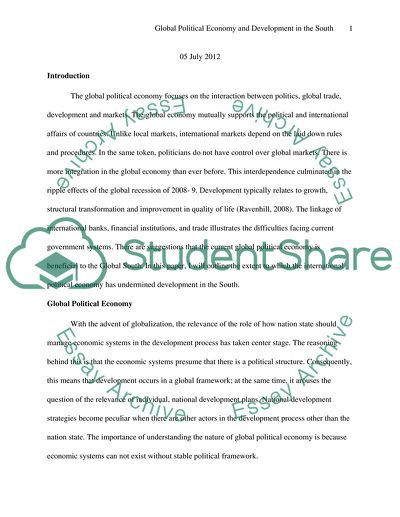Cite this document
(The Global Political Economy Case Study Example | Topics and Well Written Essays - 2000 words, n.d.)
The Global Political Economy Case Study Example | Topics and Well Written Essays - 2000 words. Retrieved from https://studentshare.org/macro-microeconomics/1599626-by-outlining-the-current-global-political-economy-discuss-to-what-extent-the-current-global-political-economy-undermines-national-development-in-the-south
The Global Political Economy Case Study Example | Topics and Well Written Essays - 2000 words. Retrieved from https://studentshare.org/macro-microeconomics/1599626-by-outlining-the-current-global-political-economy-discuss-to-what-extent-the-current-global-political-economy-undermines-national-development-in-the-south
(The Global Political Economy Case Study Example | Topics and Well Written Essays - 2000 Words)
The Global Political Economy Case Study Example | Topics and Well Written Essays - 2000 Words. https://studentshare.org/macro-microeconomics/1599626-by-outlining-the-current-global-political-economy-discuss-to-what-extent-the-current-global-political-economy-undermines-national-development-in-the-south.
The Global Political Economy Case Study Example | Topics and Well Written Essays - 2000 Words. https://studentshare.org/macro-microeconomics/1599626-by-outlining-the-current-global-political-economy-discuss-to-what-extent-the-current-global-political-economy-undermines-national-development-in-the-south.
“The Global Political Economy Case Study Example | Topics and Well Written Essays - 2000 Words”. https://studentshare.org/macro-microeconomics/1599626-by-outlining-the-current-global-political-economy-discuss-to-what-extent-the-current-global-political-economy-undermines-national-development-in-the-south.


